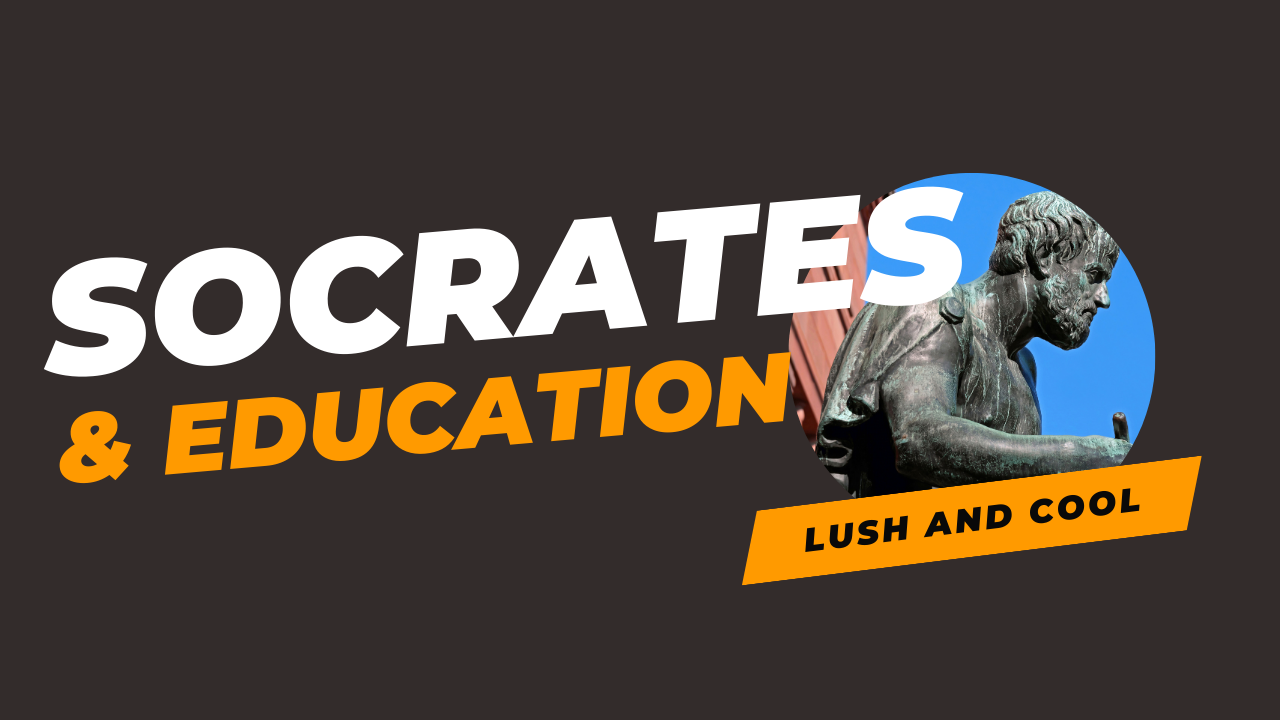Considered not only a great scholar but also one of the greatest educators, Socrates’ contributions to education were profound and continue to influence pedagogy even today.
Socrates’ Educational Theories
Socrates was a man of questions. The educational theories propounded by him are based on the belief that critical thinking and self-reflection give rise to true learning (Team, 2023). In order to teach a concept he answered the questions of his students with another question, thus forcing them to think and to arrive at a conclusion themselves. Socrates’ educational theories cover the value of knowledge types, distinguishing between trivial and crucial information. He also explores the nature of knowledge versus personal beliefs. He delves into human nature, emphasizing the ability to differentiate right from wrong. Socrates believes questioning is essential for learning, and effective teaching methods vary among individuals(Team, 2023).He highlights that learning wasn’t limited to classrooms in ancient Athens. Socrates advocates for practical, applicable knowledge over learning for its own sake. Lastly, he promotes using moral virtues to achieve consensus in disagreements.
Socratic Method
The Socratic Method is a form of dialogue between teacher and students, driven by the teacher’s questions to explore the fundamental beliefs shaping the students’ perspectives. It forms the basis of much of the Western educational tradition, starting with Plato, emphasizing questioning over traditional teaching methods like lectures and memorization. In this approach, the teacher is neither the dominant authority nor a passive observer, and students actively participate by asking their own questions (Kruse, 2023).
Socratic Method is more about unveiling complexity, difficulty, and uncertainty rather than simply seeking factual information. The objective is to uncover the underlying beliefs that influence each participant’s statements, arguments, and assumptions. The classroom environment is characterized by “productive discomfort,” encouraging open-ended questioning without predetermined outcomes. The focus isn’t solely on participants’ statements, but on the value system that underlies their beliefs and decisions. This means that challenging this system carries significant weight, potentially leading to self-reflection and change.
Inductive Reasoning
Socrates often used inductive reasoning, where he would lead students from specific examples to more general principles. This approach helped students grasp abstract concepts by starting from concrete experiences.
Criticism of Socrates
Socrates, though highly respected and revered in history, was a controversial figure in his own era. He boldly questioned the beliefs of artists, statesmen, and fellow philosophers in Athens, challenging them to justify their convictions. His unwavering skepticism alienated him from the community. One of the most serious charges against him was that he corrupted the youth of Athens by encouraging them to question established beliefs and authority figures. This accusation played a significant role in his trial and eventual execution. His philosophy and ideals were heavily criticized by Nietzsche (Kjeldsen, 2022). Some of the arguments are as follows;
1. Denial of Instinct: Nietzsche asserted that Socrates’ prioritization of reason and rationality resulted in the suppression of fundamental human instincts and passions. He believed this led to an undervaluing of the vital, life-affirming aspects of human nature in favor of an excessively intellectualized approach. Nietzsche introduced the dichotomy of the “Apollonian” (associated with reason, order, and clarity) and the “Dionysian” (linked to passion, ecstasy, and chaos). He argued that Socrates’ philosophy leaned heavily towards the Apollonian, neglecting the equally vital Dionysian elements of human experience.
2. Introduction of Morality as Rationality: Nietzsche argued that Socrates played a pivotal role in redefining morality, shifting it from its innate, instinctual roots to a framework based on rationality. He saw this transformation as problematic, as it detached morality from its organic origins, resulting in a more rigid and dogmatic moral system.
3. Critique of ‘Socratic Rationalism’: Nietzsche critiqued what he termed “Socratic Rationalism,” condemning its overemphasis on reason and logic at the expense of other valuable facets of human existence, such as intuition, creativity, and emotional expression.
4. Suppression of Individual Will to Power: Nietzsche contended that Socrates’ philosophy discouraged individuals from pursuing their own will to power, a fundamental driving force of human existence. Instead, Socrates advocated for a form of intellectual conformity and compliance.
5. Evasive Argumentation & Intellectual Elitism: Socrates faced accusations of employing evasive argumentation, known as ‘elenchus’ or ‘Socratic irony.’ This tactic involved feigning ignorance to reveal contradictions in his interlocutors’ beliefs, which some perceived as manipulative and insincere. Socrates’ philosophical approach, which emphasized critical thinking and the pursuit of wisdom, drew criticism for its perceived intellectual elitism. Detractors argued that not everyone possessed the inclination or capacity for such intellectual pursuits.
Socrates: Conclusion
Socrates’ impact on philosophy spanned epistemology, ethics, and methods of inquiry is indelible. His legacy is evident in the enduring importance of the Socratic Method, the exploration of virtue, and his influence on Plato and subsequent philosophers. His philosophical approach prioritized critical thinking, self-reflection, and the quest for wisdom through dialogue, solidifying his status as one of the most influential figures in Western intellectual history. Socrates’ contributions to education revolutionized ancient Greek learning. His emphasis on critical thinking, self-discovery, and the pursuit of virtue through dialogue set the stage for modern educational approaches. The lasting influence of Socratic teaching methods underscores their ongoing relevance in nurturing intellectual growth and moral development.


